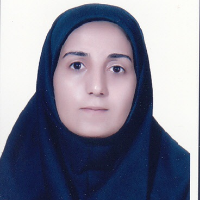Evaluating Native Communities Preferences for Conservation of Forest Ecosystem (Case Study: Shiyadeh and Diva Forests)
The forest ecosystem is one of the most important natural resources of any country, which provides various functions and services for human beings. Therefore, recognizing the functions and services related to the forest and determining the most appropriate valuation method for them is of particular importance. Also, the continuation of using the functions and services of forests requires programs to protect and improve their environmental status. This issue itself requires the participation of stakeholders and finding out about their preferences for forest ecosystem protection and valuing them. But estimating the real value of some functions, ecosystem services and developing appropriate mechanisms to obtain their economic value requires economic valuation methods using non-market methods. Although there are different interpretations of the economic valuation methods of functions and services forest ecosystems but among the various valuation methods, economists have more emphasis on the value of money that is estimated through stated preferences. One of these methods to estimate the stated preferences is the Choice Experiment.
The purpose of this study is to evaluate the preferences and willingness to pay (WTP) of native communities for the conservation of Shiadeh and Diva forest ecosystems of Babol city located in Mazandaran province using the evaluation Choice Experiment (CE) method. The Choice Experiment is a subset of the choice modeling method and the stated preference method family. Choice modeling is based on Lancaster's value theory and random utility theory. Also, Shiadeh and Diva forests are one of the green areas with all kinds of forest covers, plants and valuable trees and as one of the useful and valuable resources for the residents of the region. These forests play an important role in the lives of the forest dwellers, herdsmen and villagers on its outskirts. Also, Shiadeh and Diva forests because of the presence of natural forest ecosystem, beautiful landscapes, unique vegetation and diverse animal species, as well as special human and cultural effects, are always one of the centers of interest. This forest ecosystem is very valuable and can provide services for the residents of this area. Therefore, in this study, the statistical population of the study includes 150 native households in the villages of Shiadeh and Diva forests. In the study, research data were completed and collected by field sampling in the summer of 2020 by native communities of the region. Socio-economic variables include eight variables: age, marriage, gender, job, household size, education, income and household expenditure. The effect of these variables on the WTP of communities was surveyed. In this study, the WTP of individuals for the forest ecosystems conservation was estimated by the CE method and conditional logit model. To validate the conditional logit model, the independence of irrelevant alternatives (IIA) was performed using Hassman-McFadden statistic. Also, a multinomial logit model was used to investigate the effect of socio-economic variables on the WTP.
In this study, the reliability of the questionnaire was calculated using Cronbach's alpha test and was obtained as α=0.87, which indicates its reliability. WTP of each household for the conservation of Shiadeh and Diva forest ecosystem services, including regulatory, habitat and information services, from the status quo to the improvement situation was equal to 1020.68, 630.25 and 1026.49 thousand Rials per month, respectively. The study results showed that WTP native communities for the forest ecosystem conservation to provide regulatory services and its improvement is the first priority, and habitat and information services took the next positions.
The aim of this study was to evaluate the preferences and willingness to pay (WTP) of native communities for the conservation of Shiadeh and Diva forest ecosystem using the evaluation Choice Experiment (CE) method. In general, it can be concluded that regulatory services was the most important forest ecosystem services in terms of native communities in the region. Also, the final WTP of native communities' estemated at 33329.04 Rials per year (2777.42 Rials per household per month).Therefore, considering the great importance of the regulatory services of Shiadeh and Diwa forest ecosystem, such as water protection, soil protection, carbon sequestration and climate regulation, etc., it is suggested that relevant institutions such as the country natural resources and watershed management organization, the general department of natural resources of the province Mazandaran, regional water organization and agricultural Jahad organization allocate the necessary investments for the protection of Shiadeh and Diwa forests, and implementation of projects such as forest management projects, water protection, soil protection, species protection flora and fauna of the region projects, etc.
-
Ecosystem services of Hyrcanian Forests based on the Common International Classification of Ecosystem Services (CICES) Method
H. Amirnejad *, S. Hosseini, M. Hosseini, M. Asadpour, M. Taslimi, Y. Bostan
Iranian Journal of Forest and Poplar Research, -
Presenting Quantitative Approaches to Investigate the Importance of the Stakeholders of Ecosystem Services in Hyrcanian Forests
Hamid Amirnejad*, , Sayed Mohsen Hosseini, Maryam Asadpour Kordi, Mahsa Taslimi, Yadollah Bostan
Ecology of Iranian Forests,



